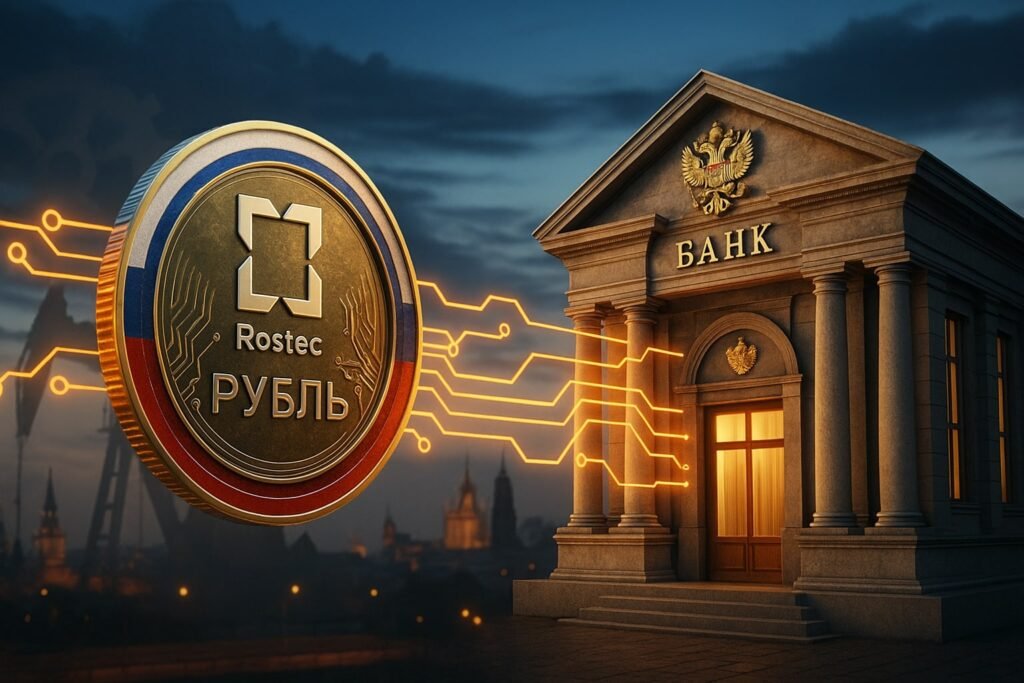Rostec’s Launch of RUBx: A New Era in Russian Digital Finance
On July 3, 2023, Rostec, a prominent Russian defense and technology conglomerate, revealed its intention to introduce a ruble-pegged stablecoin known as RUBx. This innovative financial tool is designed to enhance transactions within the country, utilizing the robust infrastructure provided by Tron. The announcement underscores Russia’s strategic pivot toward digital finance, aligning with a broader trend where major institutions are increasingly exploring blockchain technology to facilitate compliant and efficient financial solutions.
Rostec has established a one-to-one exchange rate for RUBx with the Russian ruble, a crucial element that seeks to instill confidence among users. The token will be managed through an in-house platform dubbed RT-Pay, overseen by Deputy General Director Alexander Nazarov. The infrastructure will allow users, whether individuals or companies, to transfer rubles effectively on public payment rails while ensuring adherence to domestic regulations. Each RUBx token carries a legal claim to an equivalent amount of currency, thus meeting compliance requirements and allowing for secure transactions.
Engineers have chosen to build RUBx on the Tron blockchain, known for its scalability and speed, and intend to ensure transparency by publishing the smart contract code on GitHub. Project leader Dmitry Shumayev stated that the contract will undergo a thorough audit by CertiK prior to its official launch. This commitment to security reflects Rostec’s dedication to building a stable and trustworthy environment for digital transactions, a critical factor as more Russian users and businesses become involved in digital currency.
Rostec’s RT-Pay platform aims to seamlessly integrate with existing banking systems, facilitating quick settlements and interactions with external wallets. This innovation will also include smart contract execution, aligning with the guidelines set by the Russian Central Bank. The initiative places paramount importance on anti-money laundering (AML) laws and counter-terrorism financing measures, highlighting Rostec’s efforts to navigate the complexities of digital finance within a regulatory framework.
The introduction of RUBx is part of a broader trend in Russia’s embrace of crypto and blockchain technologies. Recently, Sberbank, the country’s largest lender, launched structured bonds tied to Bitcoin and the dollar-ruble exchange rates, further diversifying the nation’s financial offerings. While Rostec’s focus is explicitly on payment solutions, these concurrent advancements signify a growing recognition among Russian institutions of the potential of digital assets to operate within the bounds of local law, ultimately reducing dependency on international platforms.
Rostec has yet to disclose specific details regarding the issuance limits or reserve management practices for RUBx. However, the corporation has indicated its intention to maintain a reserve of rubles equal to the total tokens in circulation, ensuring stability and trustworthiness. By committing to transparency through code disclosures and audit reports, Rostec will not only enhance confidence among users but also position itself as a responsible player in the digital finance space. As more sectors express interest in this innovation, the phased rollout approach aims to accurately gauge demand while expanding the scope of available financial services in the future.


